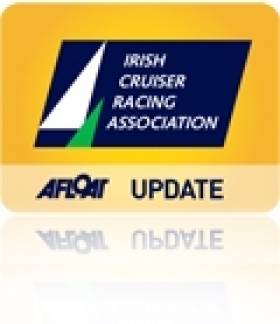Displaying items by tag: McWiliam Onesails
Big Turnout for Scora Meet (PHOTO Review HERE)
The members having been welcomed by Kinsale Vice Commodore Cameron Good, the meeting got under way with the first business of the evening being to elect a new Commodore. Vinnie O'Shea of Royal Cork Yacht Club was an unopposed unanimous choice and then took the chair. Jackie Kenefick of Schull Harbour Sailing Club was elected Executive Officer of the Association and Michael Murphy of RCYC and SHSC agreed to remain in his role of Treasurer and PRO. Also in attendance at the top table was Denis Kiely the hard working National Handicapping Officer.
The agenda item on class bands as was expected provoked lively input from the members, in fact the debate looked like going on for the evening such was the interest until the Chairman advised the members that he would shortly be calling a meeting with just one item on the agenda and that would be the class bands and handicapping.
A digital slide show of summer sailing was presented by Bob Bateman (SEE BELOW) just before there was a break for refreshments and then the eagerly awaited presentation of trophies and prizes took place. The prizes were presented by Sue McWilliam of McWiliam Onesails and Hugh Mockler of HM Yachts Ltd. and the SCORA prizes consisting of framed photographs from the 2010 sailing season were presented by the newly elected Commodore, Vinnie O'Shea.





























































